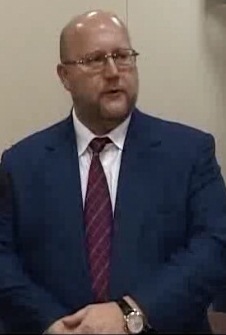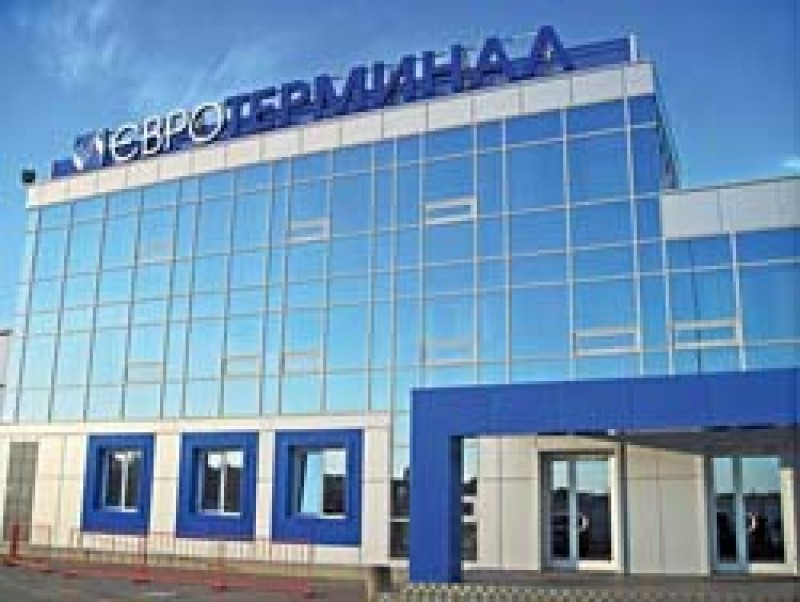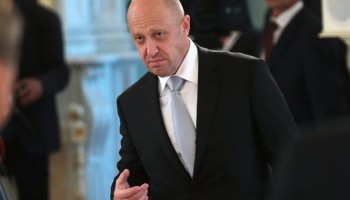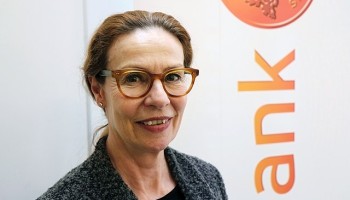Soon after the new terminal was built in 2011, government officials created a new Southern Customs branch at the private terminal. Some of the country’s imports of food, consumer goods and other essentials delivered through Ukraine’s largest sea terminal now go through this private business.
Ukraine’s state customs service, notoriously corrupt and cumbersome, has been one of the sorest points for Ukrainian businesses. According to the latest Ease of Doing Business in Ukraine report published annually by the World Bank, Ukraine’s customs service is among the most difficult to deal with in the world, scoring a dismal 145th out of 185 economies surveyed for ease of trade across borders.
it is not clear if importers still technically have the right to continue using the state-owned sea terminals for clearing their cargo. OCCRP reporters independently called the office at the sea port and were told all customs must now be cleared through the Euroterminal. The website, however, still indicates customs can be done at the sea port.
Regardless, many complain privately that they are pressured by customs officers into using Euroterminal. And that is what has importers scratching their heads. The new terminal doesn’t solve any of the existing problems and introduces new ones like higher fees. It also shifts revenues from the state into private hands.
Dmytro Gambeev, head of an Odesa-based firm that trades ceramic tiles, chose the state-owned sea terminal to undergo customs clearance procedures because it was cheaper. But it didfn’t turn out to be easier.
Clearing customs formalities recently took Gambeev two days, instead of the four hours as required by the legal code. The businessman even filmed his interaction with officials of the southern customs office which blocked his cargo. He says they suggested that he complete his paperwork at the Euroterminal. Only after the video was posted on YouTube and Gambeev complained directly to the customs’ main office in Kyiv did his shipment get clearance.
“At Euroterminal, you pay $100 just for them to open the gate. Then you pay $400 to transport your cargo from the port to the terminal. When I did custom clearance at the port, there was no ‘extortion’ like that,” Gambeev said.
According to Yuri Vaskov, the director of the state-owned Odesa Commercial Sea Port, Euroterminal has received millions of dollars in fees. The seaport’s current annual turnover reaches 20 million tons of cargo.
But now an estimated 15 to 30 percent of the containers daily go through the new private terminal. These fees, according to an investigation by reporters for the Organized Crime and Corruption Reporting Project (OCCRP), end up in the bank accounts of the offshore firm that controls Euroterminal. Ownership is hidden deep behind a chain of lawyers and proxies and it is not clear who is benefitting from the company.
Euroterminal management wouldn’t provide any financial information, although customs brokers estimate that one container going through customs via Euroterminal brings around $100 to $500 in revenue to its owners in unloading, weighing, storage and other fees. Currently, Euroterminal processes around 300 containers daily meaning that Euroterminal’s annual revenues could easily reach $20 million.
And that revenue is set to increase as, according to Vaskov, Euroterminal is currently undergoing a major expansion to boost its capacity.
Surprisingly, Vaskov does not mind the situation where the state enterprise loses business. Vaskov says he’s happy for Euroterminal. “It only helped diversify cargo traffic, so the capacity of our port only increased,” Vaskov said.
The decision to award a private company the right to clear imports through customs was made by President Viktor Yanukovych personally.
On April 8, 2011 Yanukovych instructed former head of Ukraine’s Customs Ihor Kaletnyk to assist in the opening of such a terminal, according to the Presidential Administration. Seven months later, Kaletnyk personally showed off the newly built terminal to the president. PRESIDENT PIC
All this prompts a question: How did this business get lucky enough to win the support of the president in capitalizing on huge revenue from cargo?
The real winners
 Pavel Lisitsyn, the President of Euroterminal
Pavel Lisitsyn, the President of Euroterminal
Euroterminal’s ownership structure is opaque. Officially, Odesa businessman Pavel Lisitsin is president of Euroterminal. He is the brother of Serhiy Lisitsin, the terminal’s director.
When asked about the real owners of their company, Serhiy Lisitsin, required that journalists from the OCCRP submit their questions via conventional mail. After no response was received for more than 45 days, OCCRP again contacted Euroterminal. Oleh Pedan, a representative for the terminal, said a response was sent.
Asked for a copy of the letter, Pedan said: “We don’t care what you think. We won’t send a copy!”
The former head of Ukraine’s Customs Service, Ihor Kaletnyk, likewise, avoided answering directly when asked about Euroterminal. “I don’t know who are the owners [of Euroterminal],” Kaletnyk said. “It’s not really our responsibility to check owners. The company is registered according to the law – that’s enough for us.”
Asked about the owners of his competitors, Vaskov from the Odesa Commercial Sea Port, said the ownership likely lies in Russia and the United Kingdom but would not provide details.
According to the official company registry, more than 99 percent of Euroterminal is owned by Cyprus-based Northington Holdings.
Northington is the first link of a long chain. Northington Holdings Limited is owned by Cyprus-based Westrend Trading Limited, which, in turn, is co-owned by Chanteclair Management Limited, which is the property of Themis Professional Services Limited. The beneficiary of this chain, according to the Cyprus company registry, is the local Cyprus law firm of Georgiades & Pelides LLC. Ex 4-7
This firm was established by Marcos Georgiades and Phivos Pelides, Cyprus-based lawyers. According to their biographies, they got their diplomas and started legal practice in the United Kingdom, but then moved to Cyprus. From time to time, they tour ex-Soviet republics to promote the use of offshore companies in managing corporate rights.
However, when contacted by OCCRP reporters, Marcos Georgiades said he had no connection to the company and that the company had been set up and controlled by another Cypriot lawyer, Evros Evripidou, a former member of the firm. Georgiades said their names should have been taken out of the company but that clearly hadn’t been done.
A week later, Georgiades in an email to OCCRP said “Georgiades & Pelides has no involvement with these companies at all, and the shares in Westrend Trading Ltd have been transferred away from our nominee companies and I now understand that Mr. Evripidou has updated the filings at the companies registry showing the change in shareholders. As I have already told you we have no rtranecord of these companies in our law firm.”
When contacted by OCCRP and asked about the ownership of Euroterminal, Evripidou told reporters “Are you expecting me to tell you who is the owner of the company? This is a silly question.”
Evripidou ultimately responded to further questions on ownership by saying “I am sorry I cannot be of any assistance.”
The Cyprus registry does not yet show new owners.
Support for the terminal comes from high up, says Valeriy Lokaychuk, a member of the Odesa Regional Council and deputy head of its organized crime and corruption commission.
“The terminal couldn’t be opened for a long time after being completed. Who would give permission to open it? Who would give you access to one kilometer of the border?” exclaimed Lokaychuk.
A customs official speaking on the condition of anonymity for fear of losing his job said Euroterminal’s preferential treatment hides another beneficiary who likely will never show up on any paperwork.






